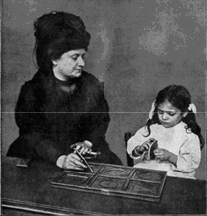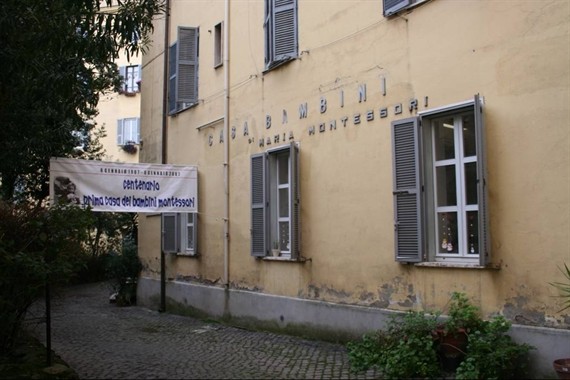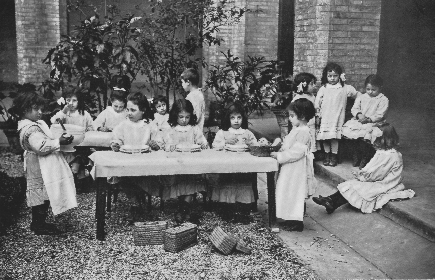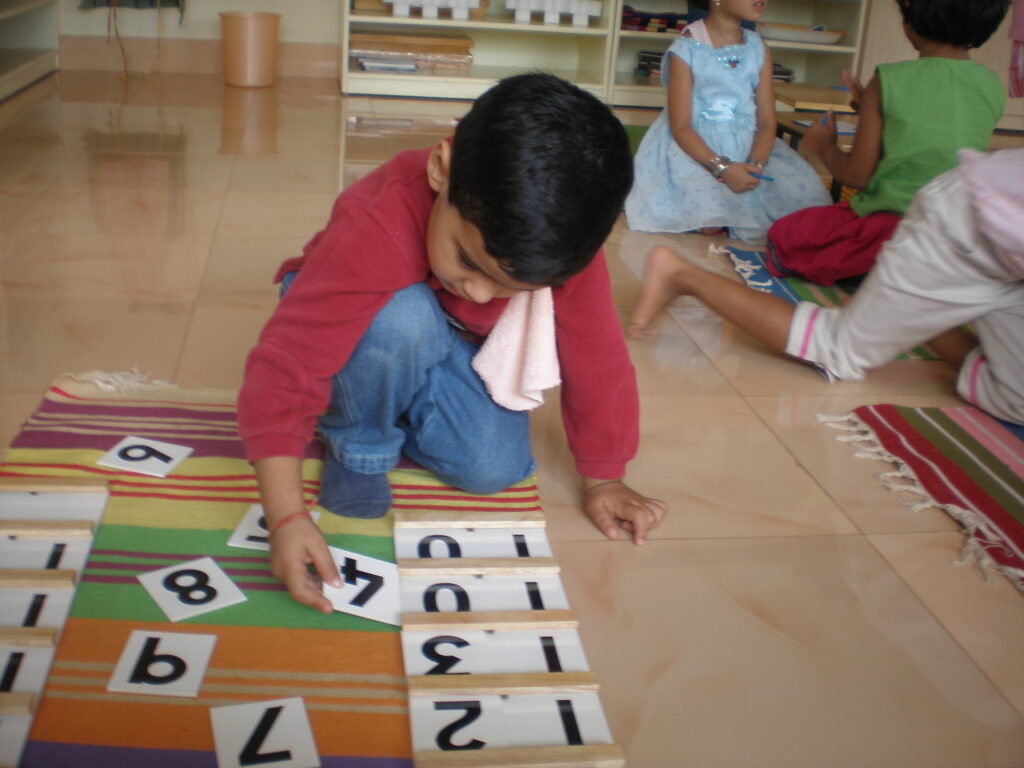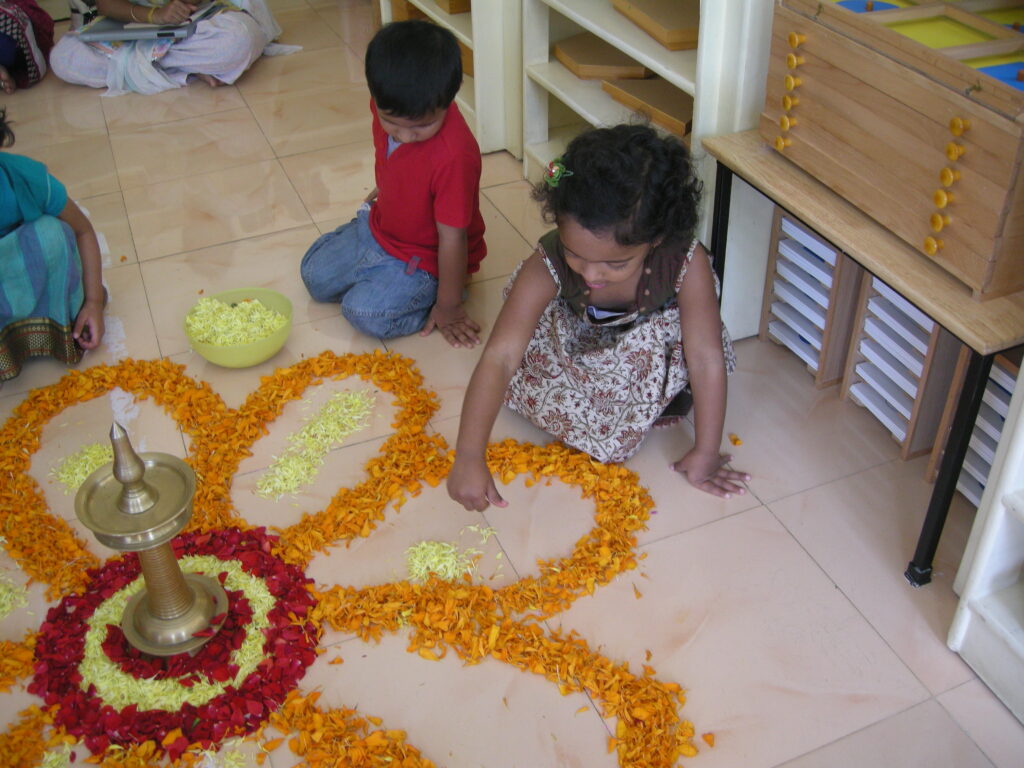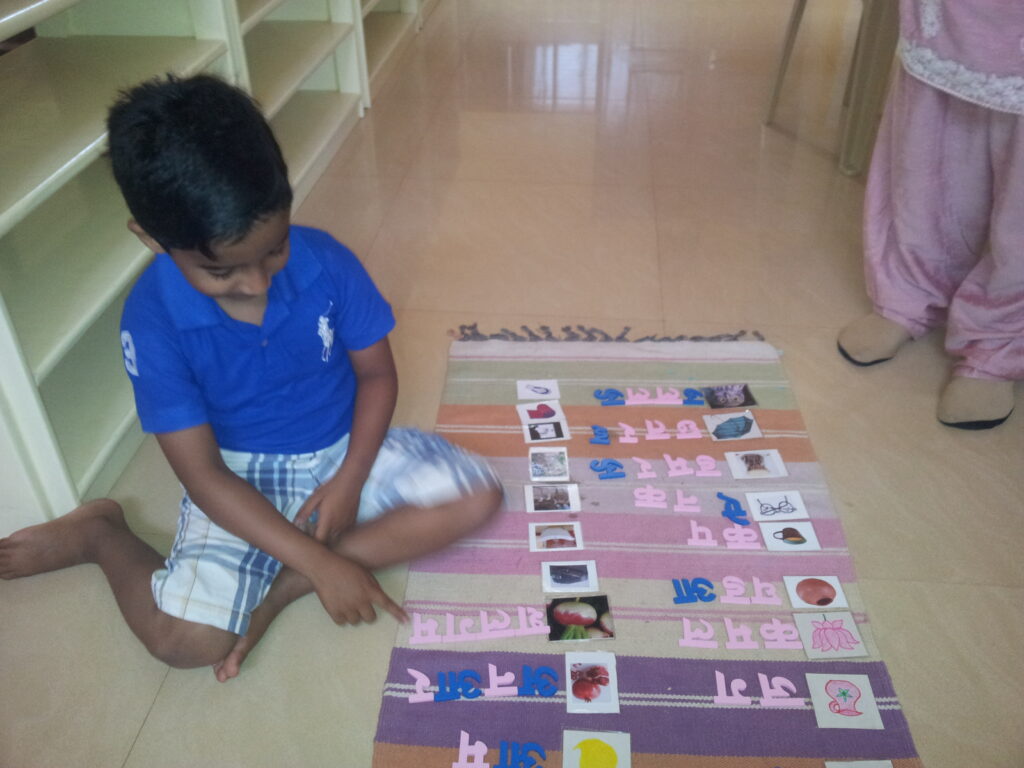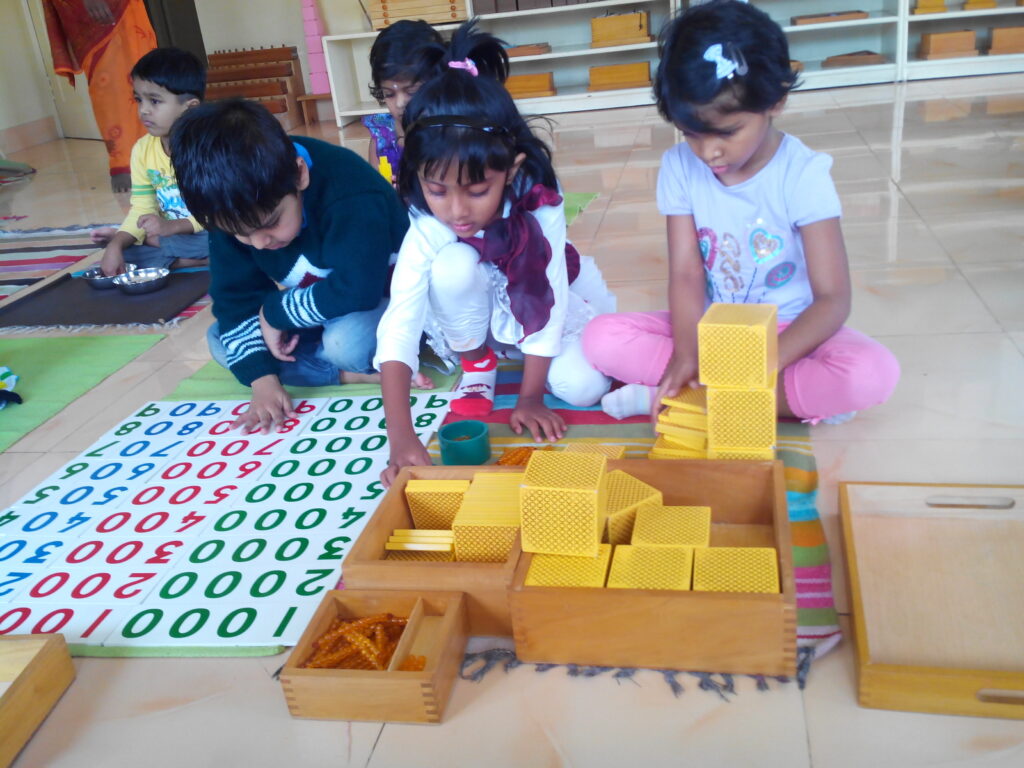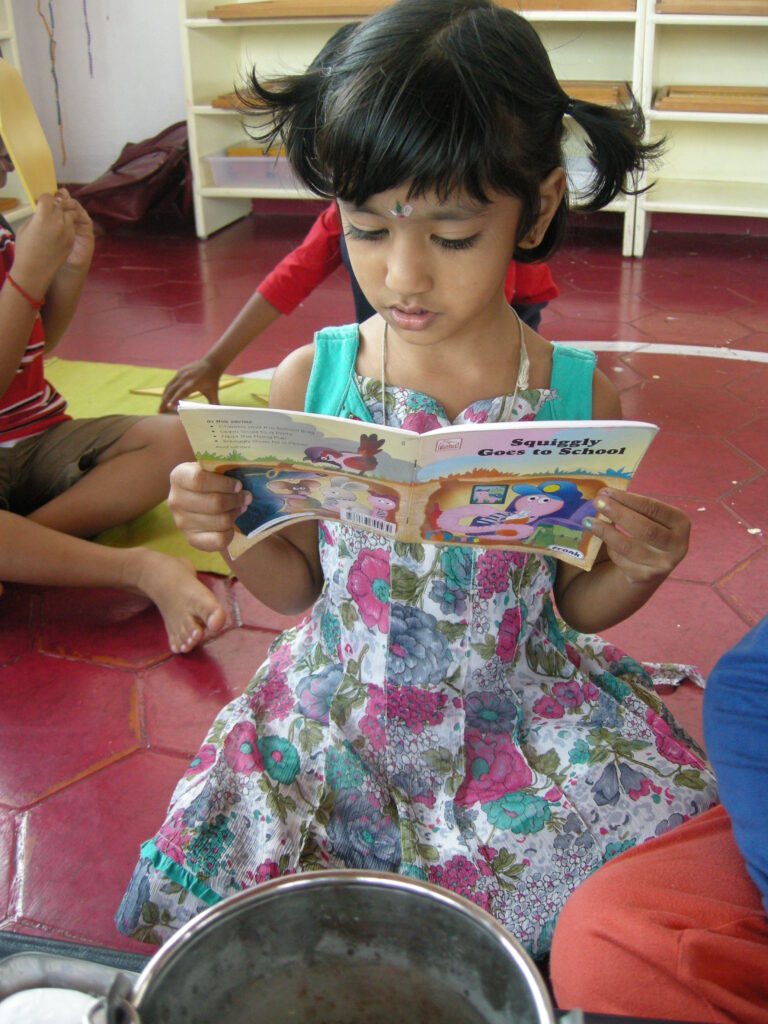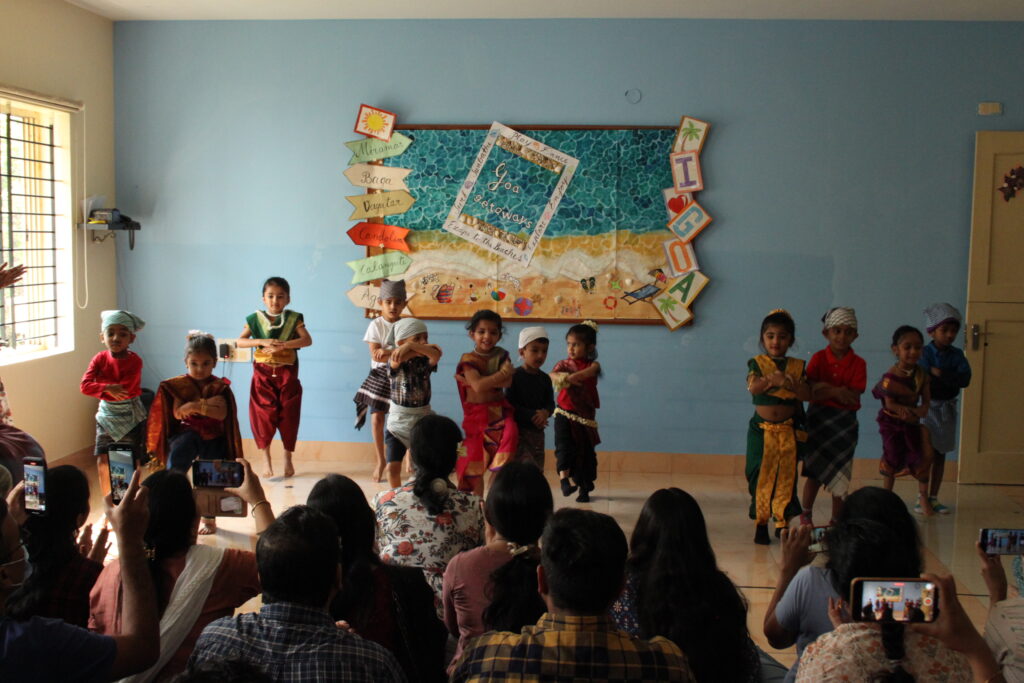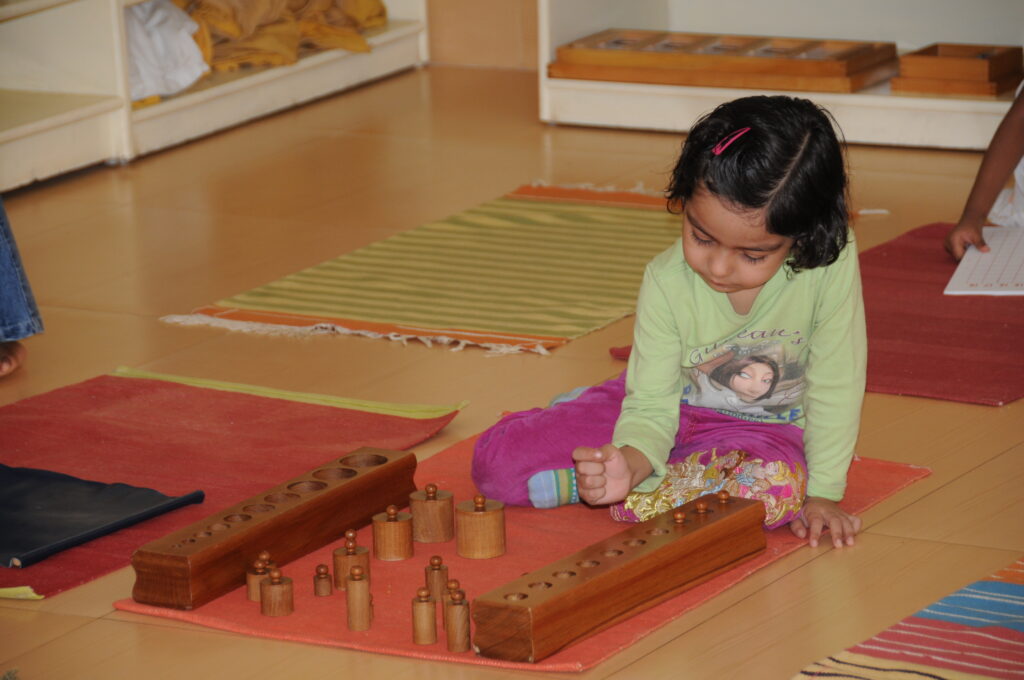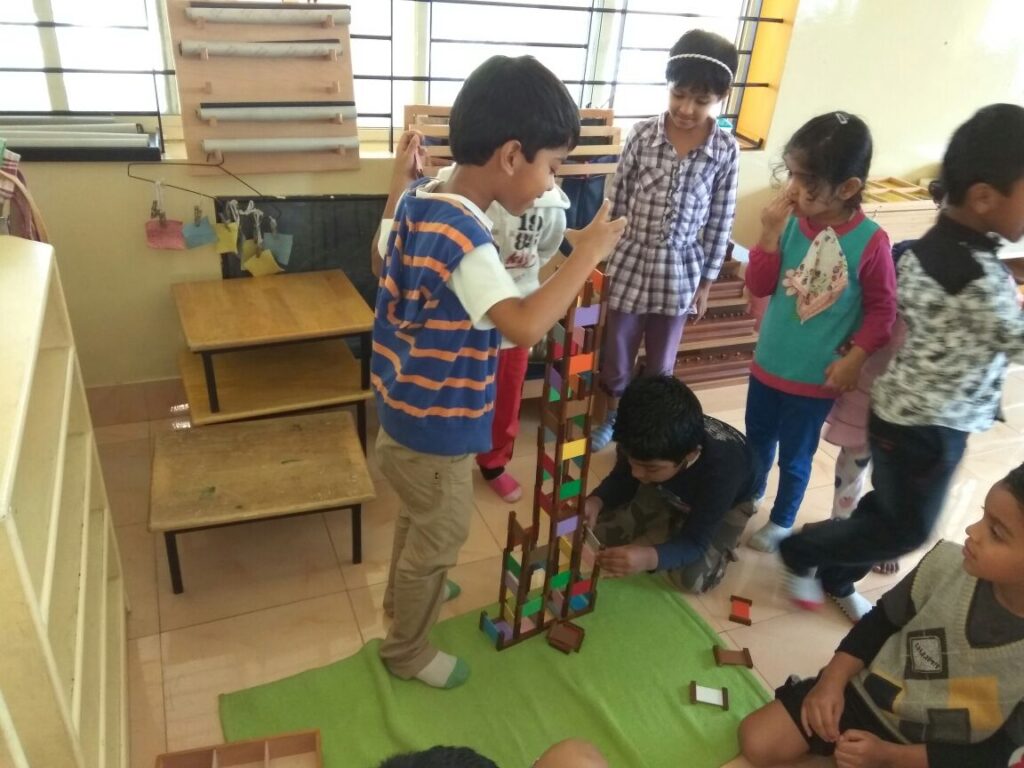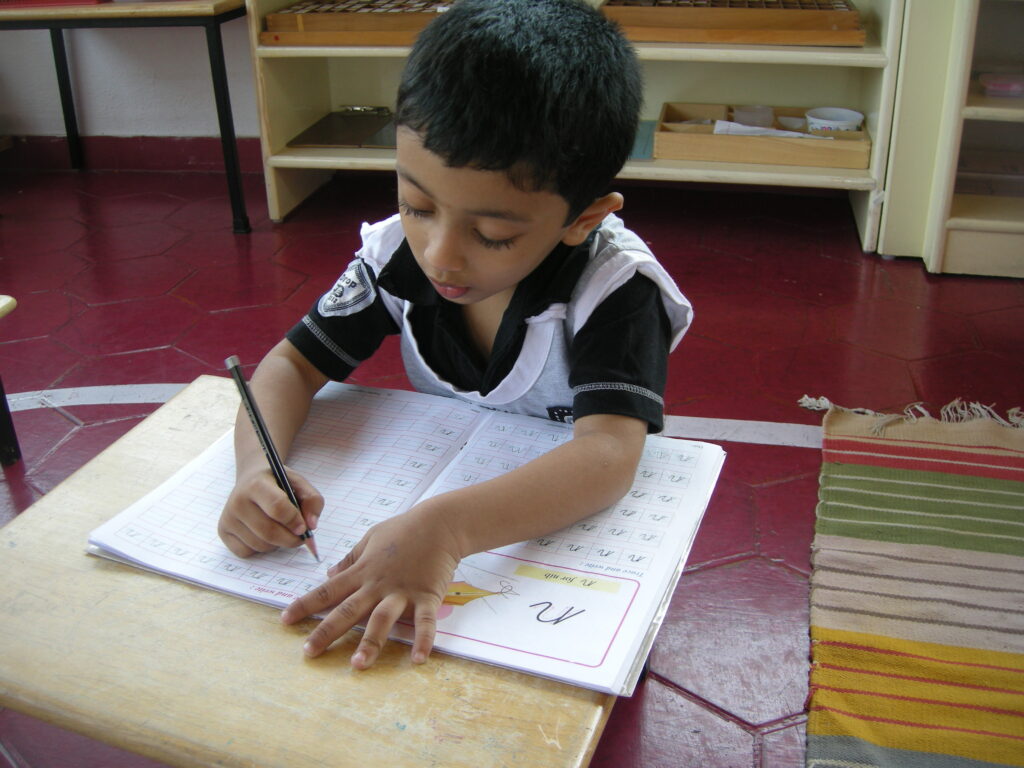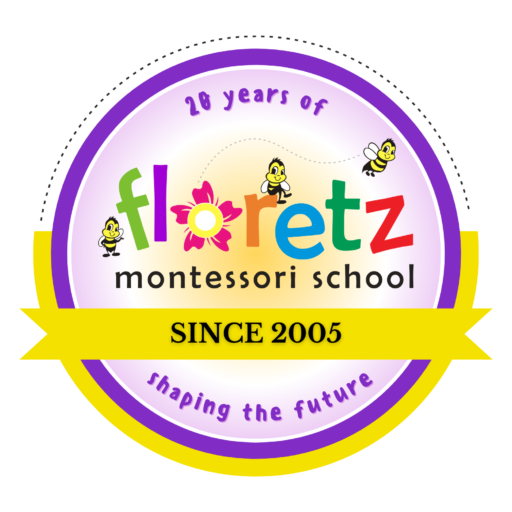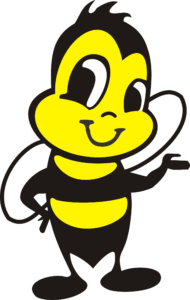 Montessori
Montessori
“There was no method to be seen; what was seen was a child… acting according to its own nature,” Dr. Maria Montessori.

What is Montessori Education?
“Education is an aid to life. It is a natural process carried out by the human individual, and is acquired not by listening to words, but by experiences in the environment.” Dr. Maria Montessori. Montessori is an educational philosophy based on the belief that a child learns best within a social environment that supports and nurtures each individual’s unique development. Montessori education was founded by Dr. Maria Montessori.
Who was Dr. Maria Montessori?
Maria Montessori (1870-1952) was an early 20th century Italian educator and visionary. She became the first female doctor in Italy in 1896. Through her work with children, she developed a unique educational method known as the Montessori Method. She received a total of six nominations for the Nobel Peace Prize in a three-year period: 1949, 1950, and 1951.
How Did It Begin?
In 1907, she opened her first classroom, the Casa dei Bambini, or Children’s House, in a tenement building in Rome. From the beginning, Montessori based her work on her observations of children and experimentation with the environment, materials, and lessons available to them. She frequently referred to her work as “scientific pedagogy”. Montessori continued to extend her work during her lifetime, developing a comprehensive model of psychological development from birth to age 24. As Montessori developed her theory and practice, she came to believe that education had a role to play in the development of world peace. She felt that children allowed to develop according to their inner laws of development would give rise to a more peaceful and enduring civilization.
Basis of Montessori Education/Curriculum
Montessori observed four distinct periods, or “planes”, in human development, extending from birth to six years, from six to twelve, from twelve to eighteen, and from eighteen to twenty-four. She saw different characteristics, learning modes, and developmental imperatives active in each of these planes, and called for educational approaches specific to each period.
At Floretz we handle children who are in the first plane
The first plane extends from birth to around six years of age. During this period, Montessori observed that the child undergoes striking physical and psychological development. The first plane child is seen as a concrete, sensorial explorer and learner engaged in the developmental work of psychological self-construction and building functional independence. Montessori introduced several concepts to explain this work, including the absorbent mind, sensitive periods, and normalization.
Absorbent mind
Montessori described the young child’s behavior of effortlessly assimilating the sensorial stimuli of his or her environment, including information from the senses, language, culture, and the development of concepts with the term “absorbent mind”. She believed that this is a power unique to the first plane, and that it fades as the child approached age six.
Sensitive periods
Montessori also observed periods of special sensitivity to particular stimuli during this time which she called the “sensitive periods”. In Montessori education, the classroom environment responds to these periods by making appropriate materials and activities available while the periods are active in the young child. She identified the following periods and their duration:
-
Acquisition of language—from birth to around six years old
-
Interest in small objects—from around 18 months to three years old
-
Order—from around one to three years old
-
Sensory refinement—from birth to around four years old
-
Social behavior—from around two and a half to four years old
Normalization
Finally, Montessori observed in children from three to six years old a psychological state she termed “normalization”. Normalization arises from concentration and focus on activity which serves the child’s developmental needs, and is characterized by the ability to concentrate as well as “spontaneous discipline, continuous and happy work, social sentiments of help and sympathy for others.”
Multiple Intelligence
One of the differences between Dr. Montessori’s approach to early childhood education and the approach found in many primary schools is the adoption of elements of the Multiple Intelligence Theory. Harvard professor Howard Gardner developed and codified this theory in the late 20th Century. Dr. Maria Montessori would seem to have developed her approach to teaching children along very similar lines. This educational approach was also used in ancient India as mentioned in the Indian Texts, the Upanishads.
Frequently Asked Questions
Are Montessori Children Successful Later in Life?
Research studies show that Montessori children are well prepared for later life academically, socially, and emotionally. In addition to scoring well on standardized tests, Montessori children are ranked above average on such criteria as following directions, turning in work on time, listening attentively, using basic skills, showing responsibility, asking provocative questions, showing enthusiasm for learning, self-help and adapting to new situations.
Do Montessori Schools Follow an Academic Year (eg. June to May)?
In Montessori schools, help is offered based on the biological age of the child. Dr. Montessori talks about the interest spurts children have at different ages. Again we offer one on one teaching in a class room. When a teacher plans a child’s lesson, the child’s age and what he has already learnt in the past are important. The concept of Academic Year and the Program as Mont 1 or Mont 2, etc. are only for administrative purposes. The curriculum is continuous and is offered at the speed at which the child learns.
What special training do Montessori teachers have?
A Montessori Primary teacher must have completed a one year diploma in Primary Montessori education with a recognized Montessori Institute. It is preferable that she holds a Bachelor’s degree and has good communication skills.
Why do Montessori Classrooms have Mixed Age Group?
This is in accordance with the Montessori Philosophy. It is of great help to the child in his social and language development. It gives him a wonderful opportunity to work as a team, sometimes to lead, sometimes to follow, learn from an older child, help the younger child, interact with peers, etc. At any point in time, there will be older children from whom the younger child picks up languages.
Is it True that Montessori Children Start Writing Late and have a Bad Handwriting?
The Montessori curriculum offers systematic motor and intellectual preparation for the child. We expect the child to start writing at the age of 4. The activities of the Montessori school offers extensive gross and fine motor preparation which is the basis for writing. With that kind of help and preparation, unless there is a biological problem, the child will write.
What is the Best Way to Choose a Montessori School for My Child?
Ask if the Principal and teachers are Montessori trained. Visit the school, observe the classroom in action and later ask the teacher or Principal to explain the theory behind the activities you saw.
